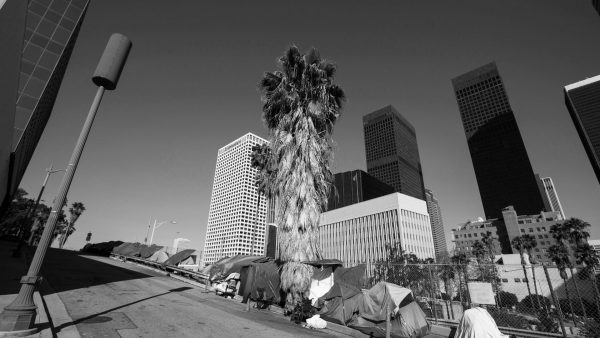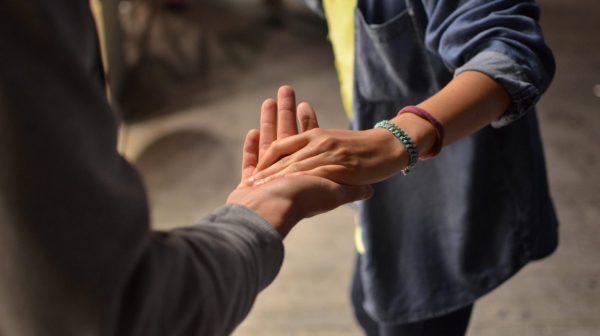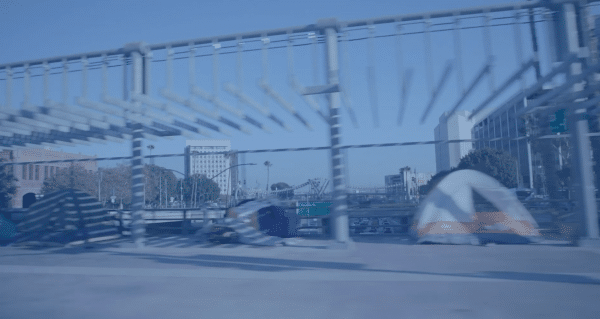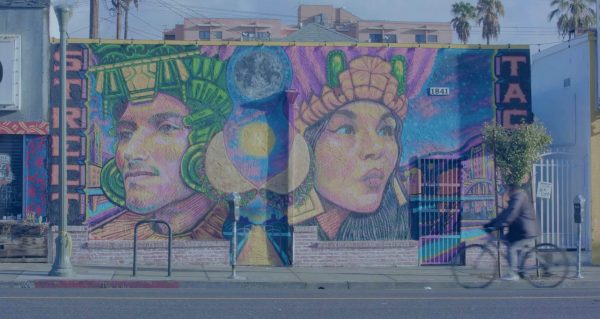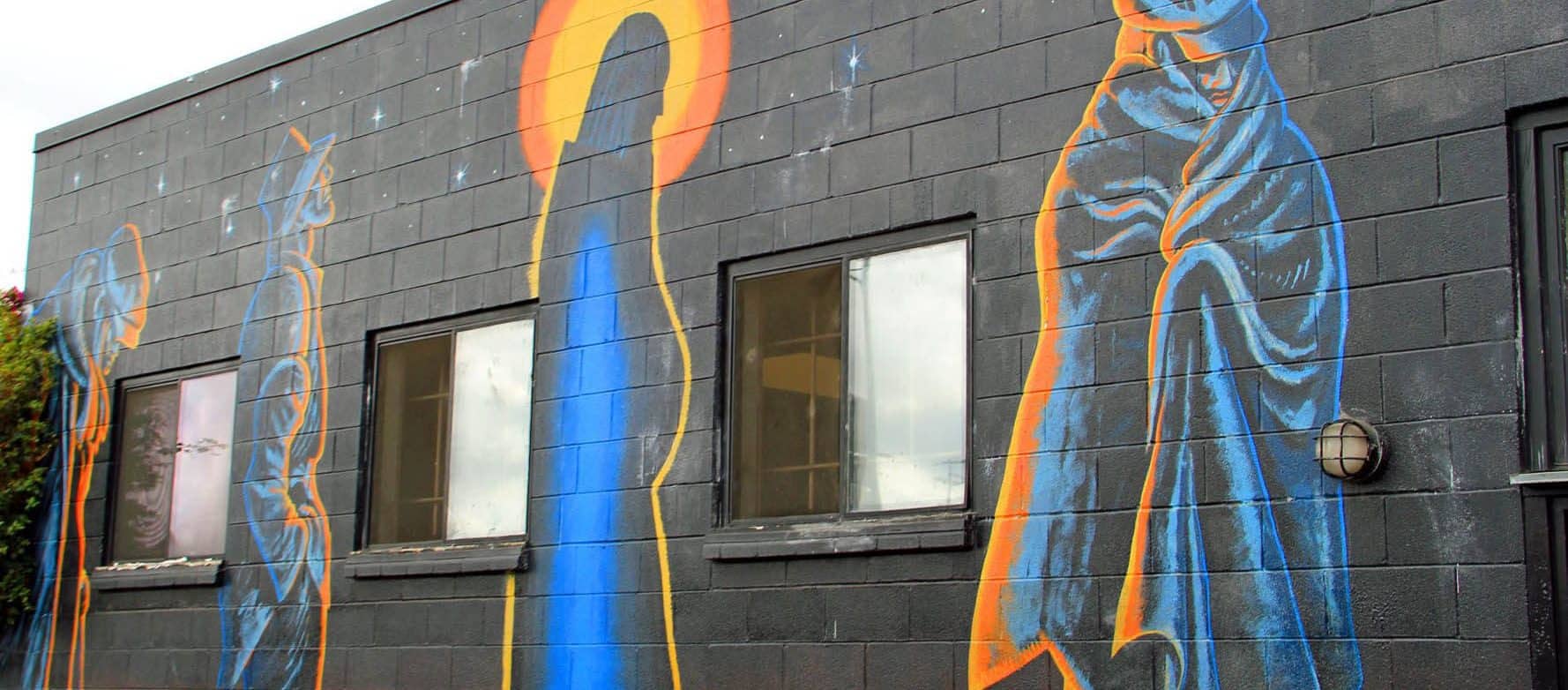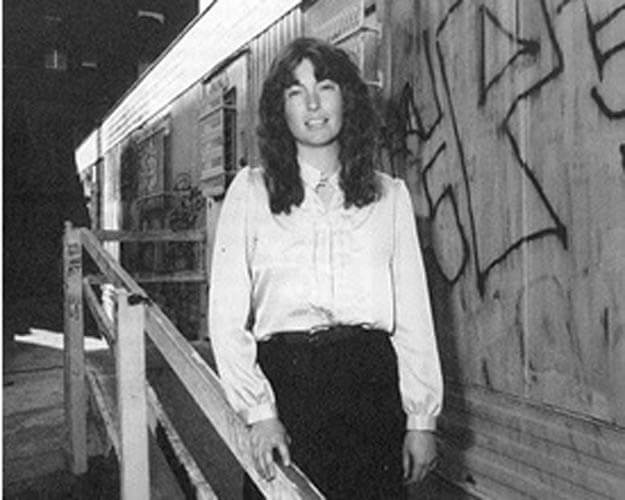
Our Beginning
In 1980, Nancy Mintie graduated from UCLA Law School and moved to the Catholic Worker soup kitchen (aka the Hippy Kitchen) in Skid Row.
Nancy set up shop inside a rusty construction trailer behind the soup kitchen and began offering free legal services to the homeless men and women on the streets and the working poor families living in the single room occupancy (SRO) hotels in the neighborhood, always following the basic principle that every person should always be treated with dignity and respect.
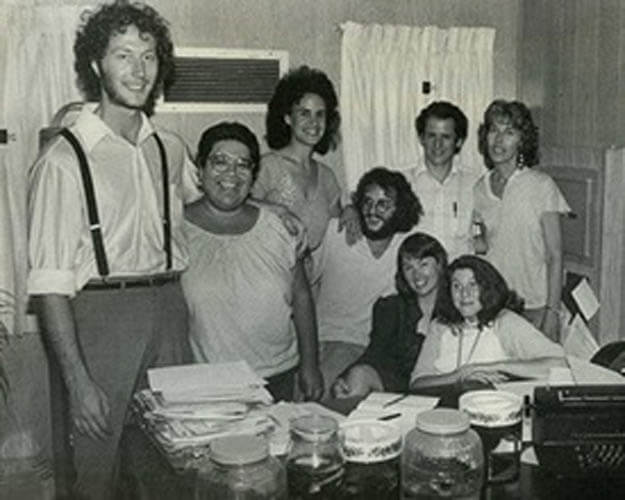
Taking on Slumlords
Soon after ICLC launched, a young mother showed up at the door of ICLC’s trailer office with a large plastic bag. Inside was a foot-long rat (not counting the tail) that had attacked all five of her children in their apartment. Too large to catch in a conventional trap, she had stayed up several nights until she was able to catch the rodent by bashing it over the head with a board. Without hesitation, ICLC accepted the case.
It wasn’t long before other tenants showed up. A stream of mothers from the same building began appearing with their own four-legged exhibits. The odor of formaldehyde inside ICLC’s trailer office grew stronger as each rat was put inside a glass jar to be used as evidence in court. During trial, ICLC held the slumlord of the building accountable for dangerous and nightmarish living conditions. ICLC even named their lead exhibit, Melvyn the Rat, after the owner of the building.
In another early slum housing case, ICLC represented two young children with cystic fibrosis who lived in a building terrorized by rats. At night, the parents had to take turns staying up all night. If they both fell asleep, the rats would chew through the feeding tubes hooked up to their children’s stomach shunts.
ICLC quickly developed a reputation for righteous cases, quality legal work, and amazing results for clients.
In one case, ICLC represented 220 tenants, including many families with children, where stories such as this one from a teenage boy were routinely recounted:
“One night a cockroach entered my ear while I was asleep. It was very painful. I could feel it moving around inside my ear and it seemed like it was biting me. My mom removed it with alcohol, and it eventually came out of my ear, dead.”
The legal team at ICLC, with pro bono support from a board member’s law firm, recovered $6.9 million for the tenants who had lived in these terrible conditions.
Early on, many legal experts believed there were little or no damages to be had in slum housing cases. In case after case, ICLC proved them wrong. More cases poured into ICLC from all over Los Angeles’ downtown neighborhood and beyond. Over the years, ICLC has recovered millions for tenants living in slum housing. Unfortunately, slum housing continues to be prevalent in Los Angeles. At any given point in time, ICLC is usually litigating 8-12 slum housing matters.
Blue Ribbon Committee on Slum Housing
In 1997, ICLC established the Blue Ribbon Committee on Slum Housing to address rampant and deplorable slum conditions in Los Angeles. The Committee’s efforts resulted in the creation of the Los Angeles Housing Department’s Systematic Code Enforcement Program (SCEP) to regularly inspect rental housing units across the city. To this day, the program continues to promote decent, safe, and habitable living standards and conditions.
Honoring and Protecting Our Veterans
Sadly, too many veterans end up homeless in Skid Row. Since 1998, ICLC’s Homeless Veterans Project has served disabled veterans who live without adequate or stable housing. With vital support from pro bono attorneys, ICLC helps homeless veterans with service-connected disabilities to secure the benefits, healthcare, and housing to which they are entitled as a result of their service.
ICLC has developed notable expertise in tackling legal issues related to the effects of PTSD, traumatic brain injury, and military sexual trauma. We have a 93% success rate in helping our clients to receive VA disability compensation and pension, retroactive monetary awards, and higher priority access to VA healthcare. For many veterans, disability benefits are the difference between stable housing and homelessness. ICLC is particularly dedicated to helping female and transgender homeless veterans, a population at high-risk that often struggles with additional traumas.
Fighting to Prevent and End Homelessness
Because of ICLC’s location at the epicenter of homelessness in America, ICLC has always focused on providing legal services that help individuals find pathways off of the streets or out of the shelters and back to stable, affordable housing. In recent years, ICLC has also become a strong advocate for homelessness prevention. The best way to end homelessness is to prevent it from happening in the first place. For many ICLC clients, preventing eviction from their homes is vital and life-changing because it keeps them from ever becoming homeless.
ICLC Turns 40
In 2020, ICLC celebrated our 40th Anniversary. Since our founding, ICLC has grown into a multi-faceted organization fighting for the housing and justice that is necessary to end the worst homeless crisis in America. With offices in Skid Row and 130+ staff members, including lawyers, paralegals, tenant organizers, and policy advocates, the passion and commitment of ICLC’s founders lives on.
